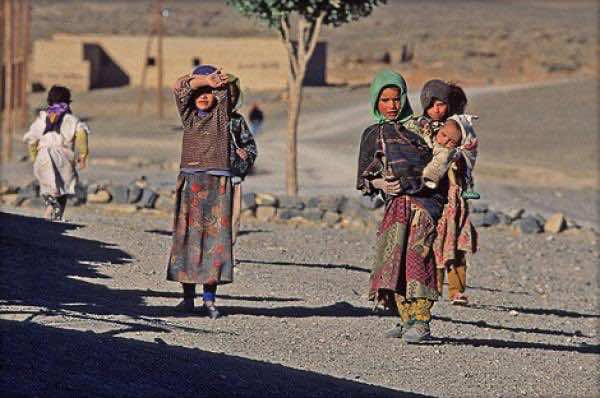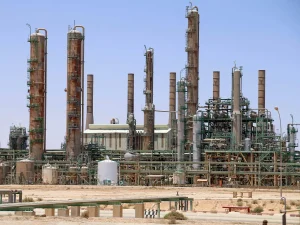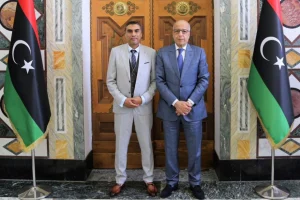Moroccan economy faces unprecedented challenges

Consumers in Morocco are suffering, as the effects of the Ukraine war, inflation, and drought are drastically rising prices and lessening the purchasing power of consumers, according to Al Arab.
Morocco launched an action plan on May 10th to combat the effects of drought, which as of this year have wreaked havoc on domestic agriculture production. According to a royal court statement, King Mohammed VI instructed the government to activate the urgent measures for the program in order to fight the effects of drought.
Rachid Aouraz, a Moroccan economist, spoke about the current state of his country, stating that Morocco “is currently experiencing a difficult economic situation that it has not seen in 20 years.” Aouraz, a senior researcher at the Moroccan Institute for Policy Analysis, explained that “there are three complex and overlapping crises that left a difficult economic situation in Morocco.”
READ: Tunisia is granted $500 million loan from African bank
Aouraz went on, saying that the first crisis in Morocco is “related to drought, and the second to inflation, and it is a global wave, not 100 percent Moroccan.” The third crisis is related to “the effects of the Corona crisis on local production chains.”
Aouraz believes that “the state’s resources are relatively insufficient to face all the challenges, and there is high unemployment due to the decline in investment since 2020, and the decline in the purchasing power of various social strata…we know unprecedented inflation rates that affected the investment market, and therefore there is high unemployment accompanied by a decline in the level of economic growth.”
Though the annual inflation rate in Morocco has decreased from 8.2 percent in March 2023 to to 7.8 percent in April 2023, it remains well above the central bank’s target of 2 percent.
Speaking to the rising prices plaguing Morocco, Aouraz stated that “inflation has led to different effects on prices and various services, and unfortunately it had a great impact on food prices and also small businesses.”
Inflation rates in Morocco aren’t the only ones reaching record levels. In the United States, consumer prices recorded a 4-decade peak in June 2022 at 9.1 percent, before slowing to nearly 5 percent last April.
READ: Food inflation continues to dog Rabat and worry Moroccans
The Moroccan government has taken some effective measures to curb inflation, like the exemption of fertilizer products from taxes and the abolition of the value-added tax on agricultural products to reduce expenditures on farmers and reduce exports of some commodities to ensure their availability in the market.
Opinions regarding the source of inflation differ between the Moroccan government and the Central Bank. Aouraz believes that “inflation was imported at the beginning, but local inflation contributed to its acceleration, due to the presence of previous policies that were pushing in the direction of lowering interest rates and increasing the money supply in order to encourage investment.” A0uraz adds that “Bank Al-Maghrib says that it must preserve the rights of foreign investors, who invest their money in the country, in light of a situation known as controlling inflation rates, and any tolerance of the phenomenon of inflation threatens their interests.”
Al Arab
Want to chase the pulse of North Africa?
Subscribe to receive our FREE weekly PDF magazine













